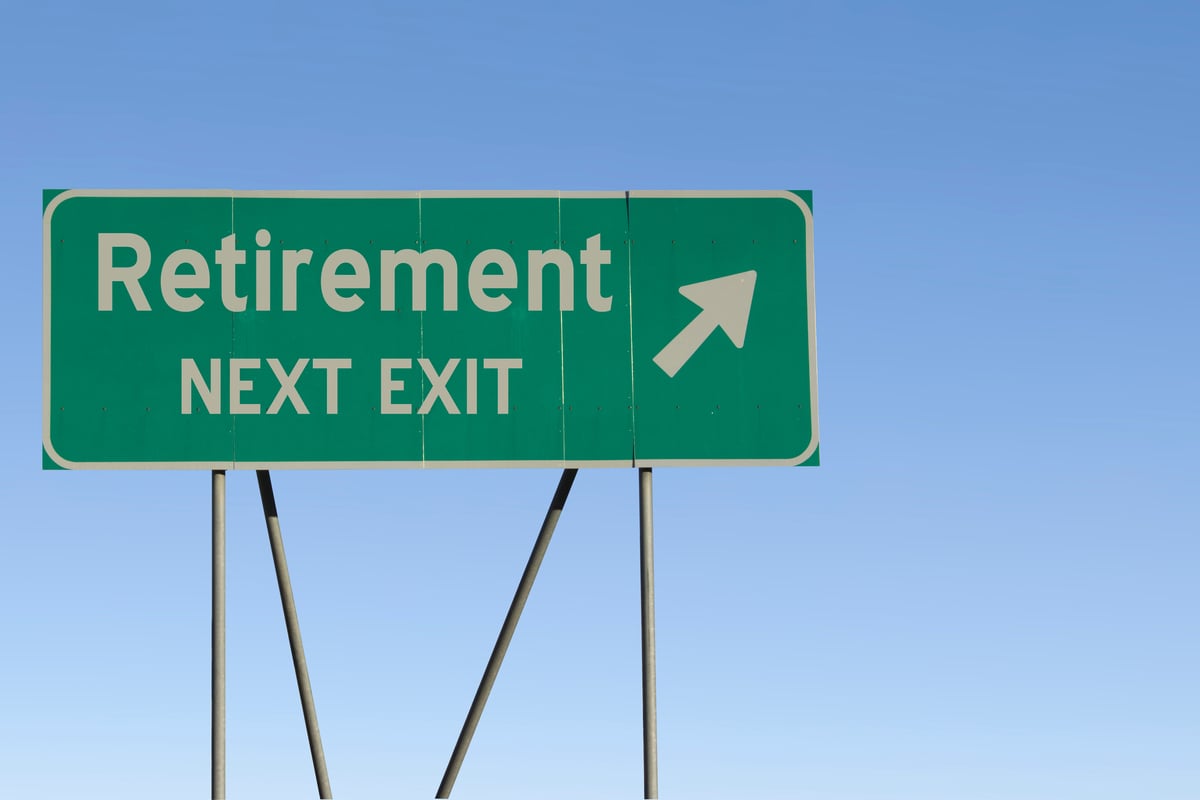There are a lot of factors to consider as you're preparing for retirement, and one of the most critical is the age at which you plan to leave your job.
The average American worker expects to retire around age 66, according to a report from the Transamerica Center for Retirement Studies and the Aegon Center for Longevity and Retirement. However, many workers are at risk of retiring earlier than they planned -- and not many people are preparing for the long list of challenges that come with this risk.

Image source: Getty Images
Most workers aren't prepared for an earlier-than-expected retirement
Approximately 39% of retirees ending up retiring sooner than they planned, according to the Transamerica report, most often due to health issues or unexpected job loss. However, although early retirement is a common issue, approximately 55% of workers do not have a backup plan in case they are forced to retire earlier than expected (and an additional 10% aren't sure whether they have a backup plan or not).
If you develop health problems, lose your job, or find yourself otherwise unable to work as long as you'd hoped, that could spell trouble for your retirement. Your savings plan may hinge on being able to work until your desired retirement age, so if you retire before that, you're missing out on valuable time to save more.
In addition, early retirement could quickly become expensive. The average American expects to live until around age 84, the Transamerica report found. So if you plan on retiring at 66, you'll need to have enough saved to provide 18 years' worth of income. But if you end up retiring early at, say, age 60, all of a sudden that's an additional six years of income you haven't planned for, assuming you have the same life expectancy. Depending on how much you're spending each year, that could amount to hundreds of thousands of dollars.
There are also a few hidden costs involved with retiring earlier than expected. For example, you're not eligible to enroll in Medicare until age 65, so if you leave your job (and lose your health insurance) before that age, you may need to buy individual insurance until you can sign up for Medicare -- and individual insurance may be far more expensive than what you paid through your employer. Also, you can't begin claiming Social Security benefits until age 62. So if you end up retiring before that, you won't be able to depend on your monthly checks to make ends meet.
How to prepare for the unexpected
A particularly challenging aspect of preparing for retirement is that you simply don't know exactly what your future holds. It's possible you may be able to work until you're 100 years old, or you might be forced to retire in your 50s if you suddenly develop health problems. And it's tough to prepare when you don't know exactly what you're preparing for.
One of the best things you can do, though, is to plan for retirement under the assumption that things won't go according to plan. If you can swing it, try to save more now just in case you end up retiring a few years earlier than you'd planned. If you wait until later in life to boost your savings, it will be harder to build a robust retirement fund in a relatively short amount of time. But by supercharging your savings when you're younger, you'll have a solid stash of cash just in case your retirement plan veers off course.
Another option is to look into creating a few sources of passive income. This way, even if you lose your main source of income later in life, you'll still have some money coming in that can help pay the bills so you won't need to pull as much from your retirement fund. Because many passive income sources require a lot of work upfront before they start to deliver a steady stream of income, it's a good idea to start establishing these income streams earlier in life -- not when you lose your job and need cash immediately.
Preparing for retirement isn't easy, but it's even more challenging when you can't predict exactly when you'll end up retiring. But by expecting the unexpected and creating a backup plan in case you're forced to retire earlier than you anticipated, you can be sure you're prepared for any obstacles life throws at you.





